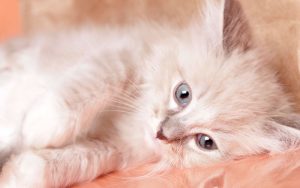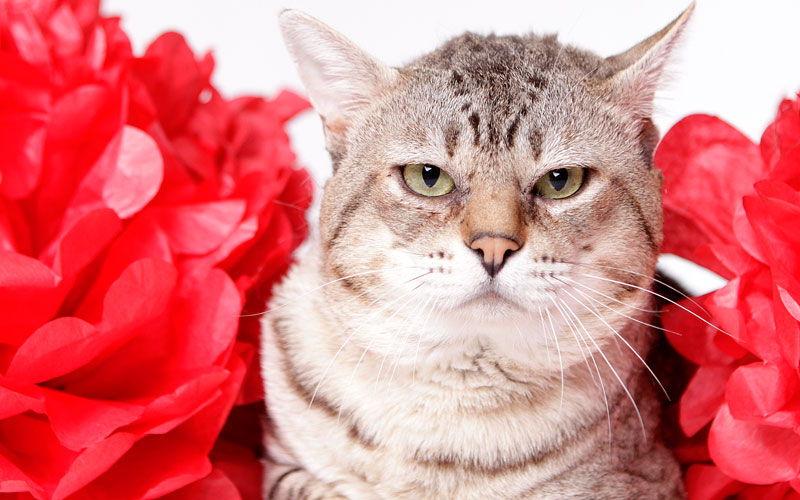Do cats always land on their feet? Do all cats need to drink cow’s milk? Tim Falk investigates seven common kitty myths and what they mean for your feline friend.
Myth 1: Cats always land on their feet
Cats are quite amazing animals, and their grace and balance is often a magnificent sight to behold. But despite the fact that they have many varied talents, being able to always land on their feet is not one of them.
“Cats have amazingly quick reflexes and are very flexible,” says Dr Joanna Paul from creatureclinic.com. “This allows them to twist and turn in the air while falling and land on their feet most of the time.” But cats don’t always land on their feet — and even if they do, they can still sustain serious or even fatal injuries from a fall. Although cats are incredible animals they aren’t superheroes, so take your feline to the vet straight away if she’s ever showing signs that she may have hurt herself.

Myth 2: Cats need cow’s milk as part of their regular diet
First-time cat owners may not know everything there is to know about feeding their feline the best possible diet, but there’s one misconception that many new cat owners believe to be true: that cats need cow’s milk as part of their regular diet. Perhaps this myth has been widely spread through cartoons — there have been plenty of cartoon kitties over the years that love nothing more than lapping up bowl after bowl of milk. But Dr Jo points out that in real life, cats don’t need cow’s milk. “Kittens require their mother’s milk for their first six or so weeks of life but after weaning, they are likely to be lactose intolerant,”
she explains.
“Young kittens should never be given cow’s milk. If they are orphaned or otherwise unable to have their mother’s milk, they need to be bottle-fed with an appropriate kitten formula.” As for adult cats, they don’t require any milk in their diet for nutrition. Many are lactose intolerant and will suffer from diarrhoea if given cow’s milk, so this widespread myth can cause painful tummy troubles for cats all around the world. If you’re confused or unsure about what your cat needs to eat and drink to stay healthy and happy, ask your vet for advice.
Myth 3: Pregnant women need to avoid cats
While many of the myths surrounding cats are pretty harmless and sometimes even funny, this one is a little more concerning. The basic idea behind it is that pregnant women need to avoid cats because they may contract a parasite from their kitty that could harm their unborn baby. Happily, Dr Jo says that pregnant women do not need to avoid cats. “The parasite of concern is called toxoplasma gondii,” she explains. “It’s generally not a problem for adults but can be dangerous during pregnancy because it can cause congenital problems.”
Cats that are infected with toxoplasma actually only excrete it in their faeces for two weeks, and they only do this once in their life. The eggs of this nasty little parasite then require at least 24 hours in the faeces to become infective. “This means that a pregnant woman would have to ingest faeces from their cat that is at least a day old in the one tiny window of that cat’s life when it is able to spread the parasite,” Dr Jo says.
But while the risk is miniscule, there are a couple of simple steps pregnant women can take to ensure that they and their child stay safe. “To avoid risk, pregnant women should simply ask someone else to clean out the litter tray. If they are the only ones who can do it, the safest option is to clean the tray at least once daily and wear gloves,” Dr Jo advises. “Studies show that people catch toxoplasmosis from improperly cooked meatthe vast majority of the time, and sometimes from soil. Contact with cats has been shown to not be a risk factor.”
The complete article was published in the May 2016 issue of PETS Magazine. Subscribe to the magazine here.


Leave a Reply